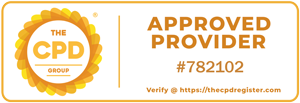Stephen Alderton | Mathematics and Numeracy Leader
Beechworth Secondary College

Stephen, a seasoned educator with a robust background in both engineering and teaching, embarked on his professional journey in 2004, earning a Bachelor of Engineering with Honours in Electronics and Communications. His early career saw him contributing to power station and substation design projects across various locations, including Tasmania, Victoria, and Scotland. In 2012, driven by a passion for education, Stephen pursued a career transition, completing a Graduate Diploma in Education at La Trobe University. Since then, he has been dedicated to shaping young minds as a Mathematics and Physics Teacher at Nossal High School in Berwick, fostering a dynamic learning environment. In pursuit of his commitment to educational excellence, Stephen relocated to the serene countryside of north-east Victoria in 2017, assuming the role of Mathematics Learning Specialist at Wodonga Senior Secondary College. Here, he not only honed his teaching skills but also championed the integration of Wolfram Mathematica as a powerful computational tool, empowering both students and fellow educators. Presently, Stephen thrives as the Mathematics Learning Area and Numeracy Leader at Beechworth Secondary College, where he spearheads innovative curriculum development and pedagogical approaches centered around computational thinking and technology in mathematics education. Firmly believing in the transformative potential of technology to engage learners, Stephen remains steadfast in his mission to cultivate a future-ready generation of mathematicians, equipped with the tools and mindset to thrive in the classrooms of 2024 and beyond.
Appearances:
Day 1 @ 15:45
Building computational super powers
This talk addresses how computational thinking integrates into mathematics education, providing ideas and strategies for effective implementation. We will introduce a model for teaching and learning computational thinking, highlighting connections between problem-solving, modeling, and mathematical thinking within the computational process. The presentation will cover key questions such as: What is computational thinking? How can it be taught? What do computational "superpowers" look like? It will also discuss tool selection, engagement strategies, and assessment methods. Attendees will gain valuable insights on leveraging technology to develop critical computational thinking skills in their students and will be encouraged to consider these ideas within their own educational contexts.
Contact us
Sponsorship Enquiries
Arron.Penman@terrapinn.com
Speaking Enquiries:
Elizabeth.Paterson@terrapinn.com
Marketing Enquiries:
Rita.Nehme@terrapinn.com
Start-Up Enquiries
Aryan.Panjiar@terrapinn.com



